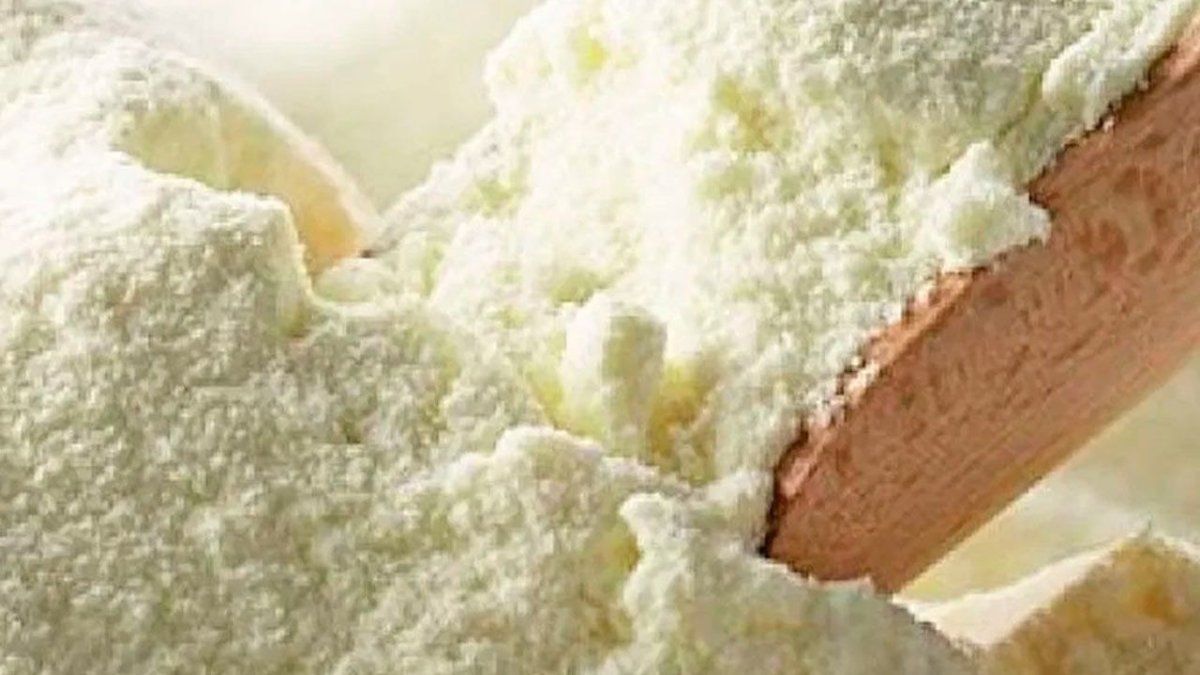He Brazil Government rHe was not imposing anti -dumping preventive measures about imports of powdered milk from Argentina and Uruguay. The preliminary determination, published yesterday in the Official Gazette of União, marks a favorable step for national exports, which In 2023 and 2024 they reached US $ 330 million, with annual volumes between 90 and 95 thousand tons.
Antidumping research had been initiated in February 2024 at the request of the Confederação da Agriculture and Pucharia do Brazil, an entity that groups agricultural producers, including local tamberos. These denounced that imported powder milk It was sold in Brazil at lower prices to those of the origin market, which could configure unfair competition.
Brazil’s decision on anti -dumping measures on Argentine milk
The process had an active participation of public and private organizations of Argentina. Among them, the National Directorate of International Cooperation and Articulation and the National Lechería Directorate of the Ministry of Agriculture, Livestock and Fisheries; the Directorate of International Economic Controversies Solution; the Argentine Embassy in Brasilia; and the National Foreign Trade Commission of the Ministry of Industry and Commerce.
Criticism of the Agreement on Powdered Milk Exports to Brazil
The Brazilian government resolved not to impose anti -dumping preventive measures.
From the private sector, the Milkish Industry Chamber and companies such as MASTELLONE, THE THREE GIRLS, NOAL SA AND GLORIA ARGENTINA SA. They contributed key information to the Comercial Defesa Department of the Brazilian Ministry of Foreign Trade, which ended up influencing the favorable resolution.
While the preliminary decision is a Good news for the Argentine industry, The case continues under analysis and a Final determination that could ratify or reverse the current scenario.
Hot milk: the two companies that are played first in the dairy industry
The dissemination of the new lactea industries elaborated by the Argentine dairy chain observatory (Ocla), corresponding to the period July 2024 – June 2025reactivated the discussion about who really leads the sector. The list of first place to Canadian Saputo, with a daily processing of 3.53 million liters. However, Mastellone Hnos. Its figure amounts to 3.65 million liters per day. This difference, linked to a methodology that does not always contemplate agreements between companies, allows the very serene to affirm that it continues to be the number one in the market.
Beyond the calculation dispute, the report reflects a structural fragmentation scenario and lower concentration. The five main industries process 36% of the country’s total milk, far from 80% that great firms usually concentrate in other dairy economies. At the end of the 90s, the local top 5 exceeded 55%.
In terms of concentration, no company exceeds 12% of the national total, in contrast to markets such as New Zealand, the United States or France, where leaders can reach between a quarter and 90% of production. In the current ranking, SAputo represents 11.6% of processed milk in Argentina.
According to Ocla, The Argentine industry became more atomized since the 90s, trend that deepened in recent times. Today, more than 40% of the volume received by the 20 main companies is in the hands of multinationals, while 30% of the milk produced in the country is processed by foreign capital firms.
Source: Ambito




